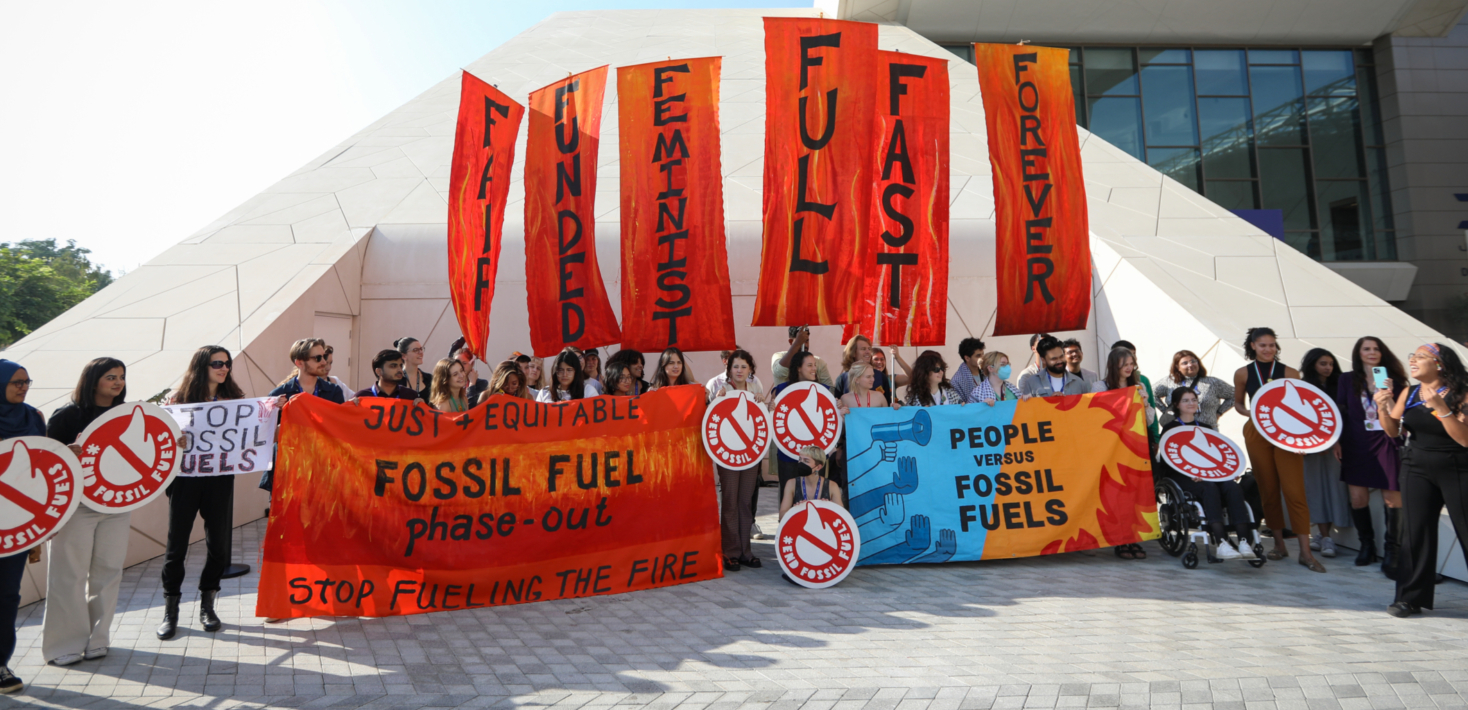![]() By Lorraine Chiponda, Africa Movement Building Space Coordinator & Don’t Gas Africa Facilitator
By Lorraine Chiponda, Africa Movement Building Space Coordinator & Don’t Gas Africa Facilitator
The climate crisis has over the years escalated at a rate not commensurate with the measures laid out in this and past COPs. Women are amongst the vulnerable groups sitting at the frontlines of the climate emergency. COP28 had some positives however these failed to really address the systemic issues needed to deal with the climate crisis. Tripling renewable energy is a step in the right direction, however this requires radical steps that ensure the finance architecture is just and fair to ensure that even the poorer countries have access to renewable energy finance.
Currently Africa receives less than 3% of the total climate a huge disparity that cripples Africa’s ability to build their renewable energy capacity and transition away from fossil fuels. It is crucial that the most vulnerable population living in energy poverty especially women are priority and energy is decentralized and made affordable to ensure it meets the needs of those currently excluded from the current energy matrix.
It is critical to note that that renewable energy tripling cannot happen without a parallel process to rapidly phase out fossil fuels. The fossils fuel economy is one singular factor that has undermined many African communities’ climate resilience because fossil projects have been associated with extractivism, land rights violations, disruption of food and water systems, disruption of women’s alternative livelihoods amongst other challenges. The energy system should be transformed to ensure it is just, democratic, serves the needs of the people and not treated like a commodity for profiteering off of but a basic good and a right.
Despite the massive negative impacts of the fossil industry in Africa some Africa negotiators still pushed for none phase out language. Since COP27 African countries have been enticed by the dash for export. Whilst Africa has produced little emissions, new investments in fossil energy will increase Africa’s future emissions thereby further depleting the already shrunk carbon space. All fossil fuels including gas cause serious emissions that cause global warming and perpetuate the climate crisis.
Climate solutions based on offsetting pollution through trading and the creation of carbon markets places the burden on poorer nations who sit on the frontlines of the climate crisis. It also rewards polluters and results in loss of land and access to forests by communities who are custodians of the lands and forests. Climate finance cannot be achieved by auctioning of forests and giving polluters access and control of our lands and forests.
Historical polluters should take drastic measures to phase out fossils fuels first and carry the morale obligation to provide sufficient climate finance for countries carrying the heaviest burden of the climate crisis.
Whilst the loss and damage fund was operationalized and funds mobilized they fall short of the damage done through more than a century of pollution. Recognizing that rich nations failed to deliver on the USD 100 billion per year goal it is crucial that the COP develop mechanism to ensure the Loss and Damage facility does not fail to deliver the finance needed by the millions and millions of people impacted by the climate crisis.


